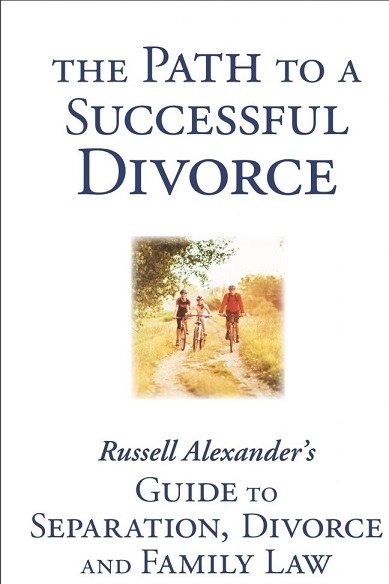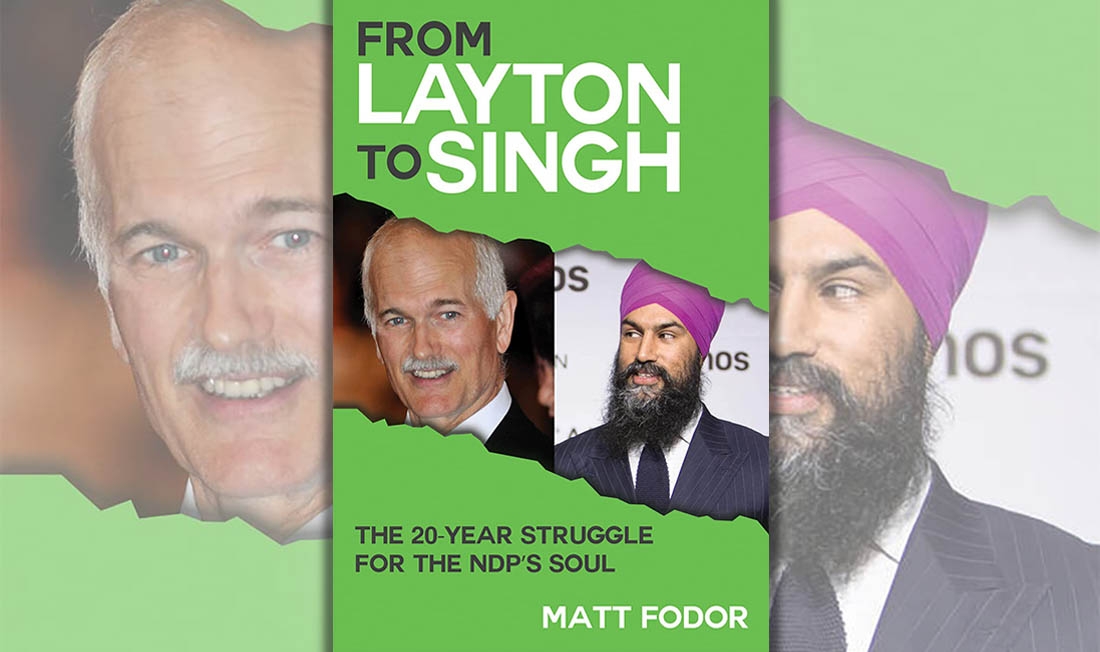
The Path to a Successful Divorce – Interview with Russell Alexander
Russell Alexander is a noted family lawyer in the Ontario region, with almost 20 years of experience, as well as the author of the new book The Path to a Successful Divorce, which was recently named a No. 1 Amazon bestseller.
In such a book, Russell Alexander offers us a complete guide to separation and divorce, taking into account mostly family law issues, as well as how it is possible to work with a family lawyer in a more efficient way.
Russell Alexander Family Lawyers is committed to practicing exclusively in the area of family law in Ontario dealing with all aspects, including separation and divorce, child custody and access, spousal support, child support, and division of family property. His team of lawyers provides guidance from start to finish, helping clients identify and understand the legal issues as well as the options and opportunities available through the transition.
For Russell Alexander, the dignity of the people, their emotional stability and the importance of the family members in children and youth are transcendental to build a better society. He has also recently given his expert opinion about how the new Ontario law could affect custody battles over transgender kids.
It should be mentioned that “the provincial government of Ontario has passed legislation that allows children to be removed from parents who oppose their expression of ?gender identity? or ?gender expression.? The new law could also become a point of contention in custody battles in families with transgender children.”
“This law directs courts and social workers to consider a child’s gender identity when determining the best interests of the child,” said Russell Alexander. And add, “In cases where the parents disagree over how best to raise a transgender child that could prove decisive in awarding custody.”
“Deciding the best interest of the child is one of the trickiest things that a court can be asked to do,” added Alexander. “This law provides a general sense of which way the government thinks things should go, but actual cases are typically quite messy. There may be few cases where there’s such a clear-cut difference that this proves decisive, but it’s still something divorcing parents should be aware of.”
In a conversation with OLM, Russell Alexander told us more about his book, and let us see his perspective regarding the new Ontario law’s impacts on custody battles over transgender kids.
Ottawa Life Magazine: In your experience as a lawyer, what are the most important issues which Canadians have left out in starting a separation or divorce process? Could we affirm that such missed issues were the primary reason to write your book?
Russell Alexander: Issues people going through a divorce sometimes leave out: the concept of sharing and still treating each other with respect after the marriage or cohabitation ends.
Many people rely on advice and tips from their friends who have divorced or from the internet. We need to remember that everyone’s path and experiences are different. The necessary approach or outcome for a couple or family may be quite different for another. Each family unit and each individual have different goals, expectations, and desires. There is no boiler plate ‘one size fits all’ solution.
Often what gets left out is timely legal advice from a family law lawyer to help explain the law, manage expectations, and guide people through what is often a difficult and traumatic time in their lives.
Ottawa Life Magazine: What have been the worst and the better results obtained in the separation and divorce processes known through your experience? To what extent may such results be associated with legal counseling?
Russell Alexander: Sometimes the worst results occur when matters go to trial. Everyone loses, and it can be very costly regarding delay, financial and emotional harm. Often times, when family matters go to trial both parties do not understand the judicial system and leave the court with a result they do not like. A statutory outcome, imposed by a Judge (whether it be in regards to spousal support or sharing family property) sometimes does not make sense to people without legal training. Contrary to popular belief, there is no redress for infidelity or other perceived wrongs or misconduct that may have occurred during the course of the marriage.
Better results are often achieved by resolving matters outside of the court system, through options such as collaborative practice and other forms of alternative dispute resolution. People will have a better chance to address their goals and interests rather than leaving it up to a lawyer or Judge to dictate what their legal rights and entitlements are. This approach often saves time and expense. Third-party financial or family professionals can be engaged to assist with a range of issues, including parenting, communication, or the division/sharing of family owned businesses to name a few examples.
Ottawa Life Magazine: Your book aims to be a legal and operative guide for people in a divorce process. Would you consider possible to work with other professionals, such as psychologists, to enhance the results of your research? Or would you believe that such process may be easily achieved solely in the legal realm?
Russell Alexander: There is always a need for other professionals to help families going through a divorce. Sometimes these professionals are court appointed. But increasingly we are seeing the evolution of divorce “teams” and collaborative divorce teams that provide a full range of services to separating families, such as: budgeting, income forecasts, retirement and estate planning, succession planning for family owned business, business valuations, voice of the child reports and expert business and asset valuations.
Our next book will cover working with professionals in the context of divorce in greater detail.
Ottawa Life Magazine: Do you think that the outlook raised by your book could include the Ontario government’s recent legislation about child’s expression of gender identity? After all, since such law allows children to be removed from their parents who opposed the child’s expression of “gender identity,” it might be a reason of contention between parents.
Russell Alexander: Family law is always evolving as does our definition and understanding of the concept of family. An easy example of this would be the expansion of the rights of common law couples to make claims for forms of property sharing through the use of equitable doctrines such as constructive and resulting trusts.
Similarly, the right of same sex marriages has also evolved. Gender identity is just another step in this evolution.
What will be interesting is the test the court will need to fashion to address this issue and balance the parent’s views with the right of the child in light of this new legislation. For example, at what age will it be reasonable for the court to confirm the child’s right to exert gender identification? Ultimately, as with many issues involving children, the base line test will be the best interests of the child.








